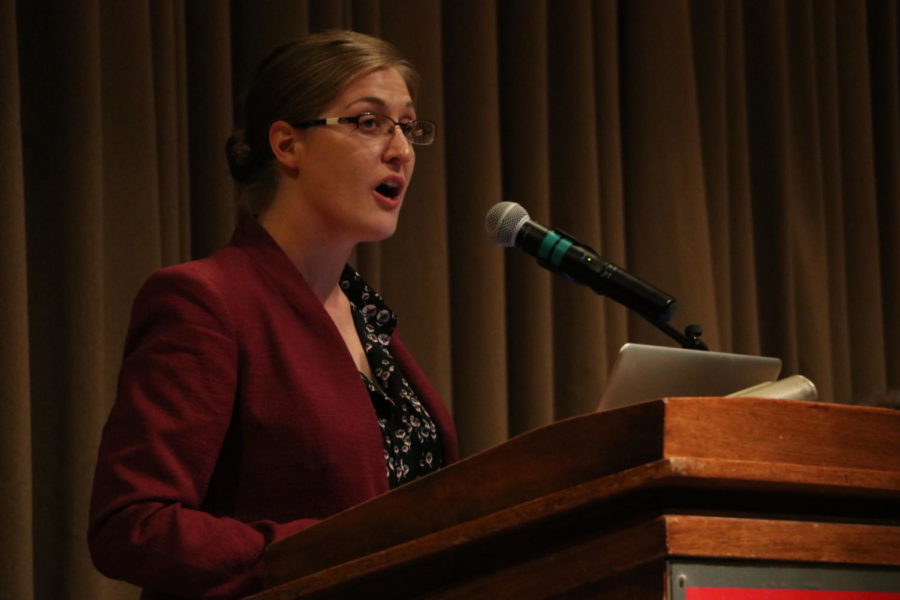Advocacy groups voice disdain for Voter ID bill
ACLU of Iowa Legal Director Rita Bettis began the ‘Know Your Rights’ forum by explaining legal rights relating to religion. The forum was focused primarily towards Muslim Americans.
April 13, 2017
With a 28-21 vote Thursday night, the Iowa Senate passed House File 516 (HF 516), a bill that would require voters to show government-issued identification at the polls.
The bill also shortens the time frame for casting absentee ballots and voting early at satellite polling sites from 40 days to 29 days, according to the Des Moines Register. The legislation will now move to the office of Gov. Terry Branstad, who is expected to sign it.
Since the legislation’s passing, local advocacy groups One Iowa, Iowa’s largest advocacy group for the LGBT+ community, and the American Civil Liberties Union (ACLU) of Iowa, have released statements raising social concerns surrounding measures presented in the legislation.
“[The bill] includes measures calculated to harm voting in Iowa, including not only voter ID but also unreliable and burdensome signature verification, cuts to early voting and other provisions,” Rita Bettis, legal director for the ACLU, said in a release. “Legislators have done so with the full knowledge that these laws will erect barriers to make it harder for people of color, senior citizens and people with disabilities, in particular, to vote.”
The bill was proposed by Iowa Secretary of State Paul Pate in January as election integrity legislation.
Pate sought to implement tighter voter identification laws that include instituting electronic poll books at every Iowa precinct, requiring voter verification at the polling place that could entail signature verification and requiring an ID number for voting per an absentee ballot.
Bettis went on to dub the passing of the legislation “outrageous,” referring to the bill as “an omnibus voter suppression bill.”
“Legislators have passed this legislation all while acknowledging that Iowa has one of the best systems in the country for elections and that there is virtually zero voter impersonation fraud in our state,” Bettis said. “Rather, the only problem they claim to be solving is a perception — of their own making and which they state is not accurate — that there is a problem with voter fraud.”
One Iowa Executive Director Daniel Hoffman-Zinnel mirrored Bettis’ sentiments that the passing of this legislation would create barriers for people of color, people with disabilities and elderly people at the poles. He also said that it would disenfranchise members of the LGBT+ community.
“We are appalled that the Iowa Senate has chosen to make exercising the right to vote far more difficult and potentially dangerous for some of their constituents,” Hoffman-Zinnel said in the release. “Transgender Iowans will face unique challenges at the polls due to how difficult obtaining identity documents that accurately reflect their name and gender can be.”
Hoffman-Zinnel’s statement cited a National Transgender Discrimination Survey conducted by the National Center for Transgender Equality. According to the citation:
“Only 11 percent of respondents reported that all of their IDs had the name and gender they preferred, while 81 percent reported that none of their IDs had the name and gender they preferred. Additionally, 31 percent of transgender Iowans responding to the survey reported being verbally harassed, denied benefits or service, asked to leave or assaulted when presenting identification that didn’t accurately reflect their name or gender.”
Hoffman-Zinnel said that transgender Iowans may face similar situations if Branstad signs HF 516 into law.
















